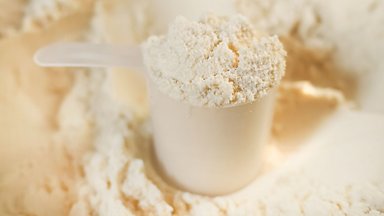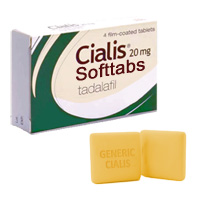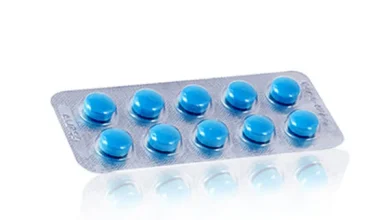The Ultimate Guide to Purchasing Essential Oils: Tips for Finding the Best Quality

Essential oils have gained immense popularity over the years for their versatile benefits. Whether you’re looking to enhance your skincare routine, alleviate stress, or boost overall wellness, essential oils provide a natural solution. But with so many options available, purchasing essential oils can be overwhelming. How do you know if you’re getting a high-quality product? What should you look for in an essential oil brand?
In this guide, we’ll explore everything you need to know before purchasing essential oils, including what to look for, the different types of oils, and some top brands to consider.
What Are Essential Oils?
Essential oils are concentrated plant extracts that capture the natural scent and beneficial properties of the plant from which they are derived. These oils are used for aromatherapy, skincare, household cleaning, and even medicinal purposes. Each essential oil offers unique benefits depending on the plant, and many people use them to promote relaxation, relieve pain, boost immunity, and more.
Factors to Consider When Purchasing Essential Oils
Before you start buying essential oils, it’s important to know what to look for to ensure you’re getting the best quality for your money. Here are some key factors to consider:
1. Purity
The most important factor when buying essential oils is purity. High-quality essential oils are 100% pure, meaning they contain no synthetic additives, fillers, or dilutions. When an oil is labeled as “pure,” it should only contain the oil extracted from the plant. You’ll want to avoid oils with added fragrances or chemicals, as these can reduce the effectiveness and safety of the product.
Look for oils that are labeled as 100% pure, therapeutic grade or certified organic for peace of mind.
2. Source and Extraction Method
Where and how the plant was grown can have a significant impact on the quality of the essential oil. Check whether the brand discloses the origin of their plants, as different regions may produce higher-quality oils depending on the climate and growing conditions. Organic farming methods ensure that no harmful pesticides or chemicals are used, which can affect the oil’s purity.
The extraction method is equally important. The most common methods are steam distillation and cold pressing. Steam distillation is used for most essential oils, while cold pressing is typically used for citrus oils. Avoid oils that have been extracted using chemical solvents, as these can leave behind harmful residues.
3. Packaging
Essential oils are sensitive to light and heat, which can degrade their potency over time. To preserve their quality, essential oils should always be packaged in dark amber or cobalt blue glass bottles. Clear or plastic bottles can lead to oxidation, reducing the oil’s effectiveness.
Additionally, look for brands that include proper labeling, such as the Latin name of the plant, the country of origin, and batch numbers for quality control.
4. Price
While everyone loves a good deal, it’s important to remember that high-quality essential oils come at a price. If a deal seems too good to be true, it probably is. Pure essential oils require a large quantity of plant material to produce a small amount of oil. For example, it takes about 60 roses to make just one drop of rose oil.
Oils like rose, jasmine, and sandalwood are typically more expensive due to the difficulty in extraction and the rarity of the plants. On the other hand, oils like lavender, tea tree, and eucalyptus are more affordable because the plants are more abundant and easier to distill.
5. Testing and Certification
Reputable essential oil companies should test their products for purity and quality. One way to ensure this is by looking for GC/MS testing (Gas Chromatography-Mass Spectrometry), which analyzes the chemical composition of the oil. This test ensures the oil is pure and free from adulterants.
Some brands will provide batch-specific GC/MS reports on their website, which gives you transparency into the quality of the oil. Additionally, look for certifications such as USDA Organic or Ecocert, which ensure the oil has been produced without the use of harmful chemicals.
Top Essential Oils to Consider for Purchase
Now that you know what to look for when purchasing essential oils, here are some popular options that you can consider adding to your collection:
1. Lavender Essential Oil
Lavender is one of the most versatile and widely-used essential oils. Known for its calming and soothing properties, it’s a great choice for promoting relaxation, improving sleep, and relieving anxiety. It also has anti-inflammatory and antiseptic properties, making it useful for skincare, especially for treating acne and minor cuts.
2. Tea Tree Essential Oil
Tea tree oil is a powerful antibacterial and antifungal agent. It’s commonly used to treat acne, dandruff, and skin infections. Because of its cleansing properties, tea tree oil is also frequently used in natural household cleaners.
3. Peppermint Essential Oil
Peppermint oil is known for its refreshing and invigorating scent. It’s commonly used to relieve headaches, improve focus, and boost energy. It’s also effective for relieving muscle pain and soothing digestive issues.
4. Eucalyptus Essential Oil
Eucalyptus oil is a favorite for respiratory support. It helps to clear the sinuses, reduce coughs, and open up the airways, making it a go-to for treating colds and congestion. It also has antimicrobial properties, making it a great addition to your cleaning routine.
5. Rose Geranium Essential Oil
Rose geranium oil offers a sweet floral scent and is known for its balancing and soothing effects on the skin. It’s commonly used in skincare to treat eczema, dermatitis, and other inflammatory skin conditions. It also works well as a natural insect repellent.
Recommended Brands for High-Quality Essential Oils
Here is reputable essential oil brand known for their purity, transparency, and high-quality standards:
Reensing Natural Skin Care Products
If you’re looking for a trusted brand that emphasizes purity and organic ingredients, Reensing offers a wide range of essential oils, from calming lavender to invigorating peppermint. Their oils are certified organic and come in eco-friendly packaging to maintain quality and sustainability.
How to Use Essential Oils Safely
While essential oils offer a wide range of benefits, it’s important to use them properly to avoid adverse reactions. Here are some tips for safe use:
- Dilute with a carrier oil: Essential oils are highly concentrated and should always be diluted with a carrier oil (like coconut or jojoba oil) before applying to the skin.
- Perform a patch test: Before applying any essential oil to a larger area, test it on a small patch of skin to ensure you don’t have an allergic reaction.
- Avoid direct sunlight: Some oils, like citrus oils, are phototoxic and can cause skin irritation or burns if exposed to direct sunlight after application.
- Use caution during pregnancy: Some essential oils are not recommended for use during pregnancy, so it’s best to consult with a healthcare provider before using them.
Conclusion
Purchasing essential oils doesn’t have to be overwhelming if you know what to look for. By focusing on purity, sourcing, and proper packaging, you can ensure you’re buying high-quality oils that provide the best benefits. Whether you’re looking to unwind with lavender oil, boost your energy with peppermint, or improve your skincare routine with tea tree oil, there’s an essential oil out there for you.
Make sure to buy from reputable brands, and don’t forget to use essential oils safely for maximum benefits. Ready to start your essential oil journey? Try out some of the recommended oils above and experience the natural benefits they offer.



